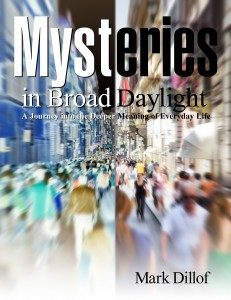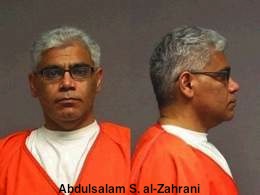The ancient Greek philosopher Heraclitus contended that the universe is maintained by a tension between opposing forces. What sort of opposing forces? For example: summer and winter, joy and sorrow, male and female, work and play, day and night, young and old, wellness and illness, war and peace, seriousness and mirth, love and hate, waking and sleeping, life and death.
Most people prefer one of the pairs of opposites to the other. They might, for example, prefer peace to strife. But Heraclitus warns us: “Homer was wrong in saying: ‘Would that strife might perish from among gods and humans!’ He did not see that he was praying for the destruction of the universe; for, if his prayer were heard, all things would pass away.” If Heraclitus is right, then be careful what you pray for!
Heraclitus’ metaphysical truth made sense to me, one evening, when I was struggling, as I often do, with the fitted sheets that I use on my bed. The four elasticized corners pull in opposing directions. By virtue of this tension, the sheet stays on the bed. But, let’s just say that — due to insomnia, troubled dreams or visitations by succubi — my sleep is not so sound, that I’m tossing and turning all night. Well, the odds are that one of the corners of the fitted sheet is going to snap loose, right off the mattress. I could then arise from my comfortable bed, in the cool of the evening, to reattach the loose end of the fitted sheet to the mattress. Or I could, as I often do, ignore the problem and seek to return to the dreamland of Morpheus.
The problem, though, with ignoring the snapped end of the sheet is that the other three corners — having lost their tension — will no longer stay in place. Pretty soon, given enough tossing and turning, I’m sleeping on a bare mattress, for the sheet is now crumpled together, on either side of the bed or it’s near where my feet are or it’s fallen to the floor.
Yes, I could use safety pins to affix each end of the fitted sheet to the mattress, but my daemon admonished me against cheating in this fashion. So it is that ignoring a problem in one area of our life often causes other areas of our life to become undone, for everything in our life is interconnected, more than we would care to acknowledge.
On the other hand, a small change in one corner of our life, can transform the entire fabric of our life for the better, which is what George Costanza discovered when he ordered a different type of sandwich for lunch, than he was wont to eat. But our interest here is in the negative dimension of the fitted sheet phenomenon. And speaking of the negative, if two or more people are sleeping on the same bed, then fitted sheet phenomenon increases geometrically and all bets are pretty much off.
As we shall see, the tension between opposites must be maintained, in fitted sheets as in the universe and in one’s life…
The Four Elements as a Fitted Sheet
Ancient Greek medicine consisted in seeking to balance, in a person’s soul, the four elements — earth, air, fire and water. They worked with the four elements and I struggle with the four corners of my fitted sheet. In truth, everyone struggles with the daily effort to integrate opposing life concerns. We might, for example, seek to balance our career, family life, hobbies, and spiritual life — those four. To be a balanced person is to integrate, to varying degrees of success, these often opposing interests. Alas, how precarious any balance is!
Soren Kierkegaard even believed it necessary, if we are to attain selfhood — and thus self-fulfillment, happiness, and salvation — to integrate time and eternity, as well as the finite and the infinite. It is difficult, indeed, to have one’s mind on God while at work, or shopping or visiting one’s stockbroker. There is always a tendency to lose one side of the equation and so to lose one’s balance. Kierkegaard contended that to gain the finite, but to lose the infinite — or vice versa — is to be in despair. He also contended that most people, unaware of how imbalanced their life is, are in despair without even realizing it. Could we see the inner person, we would discern that he or she walks through life, unbalanced, like a drunken fool.
Often, we may actually seek to lose one of the opposing sides. Why? Because we tire of the continual efforts to maintain the tension between opposite concerns in our life. We might, then, seek to get drunk, to get distracted with busyness, or to lose self-awareness in a great variety of ways. Thus do we seek to take “moral holidays,” as William James called it.
Take, for example, the opposition between work and play. Needless to say, most people, if they had their choice, would dissolve the balance between work and play. They would much prefer to play all day. Thus do they look forward to retirement, that condition in which the work/play opposition has been dissolved. Many people seek to acquire enough money so that they can stop working, even if they are in their twenties.
If, upon retirement, a person loses the work/play tension, his life becomes threatened with dissolution…
Would you like to read the rest of this insightful
essay? Then download a copy of of Mysteries in
Broad Daylight!
Broad Daylight!
Hot off the virtual presses, after four years of intense research and writing! Dr. Mark Dillof has essentially written a detective manual, for those seeking clues to the most perplexing enigmas of everyday life. He initially planned to sell it at seminars, for $75, but a friend recommended making it available to a much larger audience of readers, by offering it as an e-book, for only $9.95. Read more about this amazing new book, at: www.deepestmysteries.com
Or you can…
Download for Barnes & Noble Nook
Mysteries in Broad Daylight contains:
- Powerful essays — like the one you’ve been reading, designed to help you decipher the meaning of everyday life, who you are and what it’s all about.
- Exciting dialogues — they will entertain you, but also make you think deeply about life.
- Exercises and questions designed to teach you the art of uncovering the deep meaning of everything — from the foods we eat to our conflicts at the workplace, from our problems on the golf course to life’s ultimate riddles.
- And much, much more!
Mark Dillof’s new book will awaken you to the mysteries of everyday life. Indeed, it’s likely to expand your consciousness 100fold, illuminate your world and blow your mind!
How much is a life-changing insight worth to you? $1000? $10,000? Priceless? Mysteries in Broad Daylight is overflowing with life-changing insights and all for only $9.99!
Read more about this amazing new book at www.deepestmysteries.com
Mysteries in Broad Daylight will soon be available in paperback, for $19.99.




